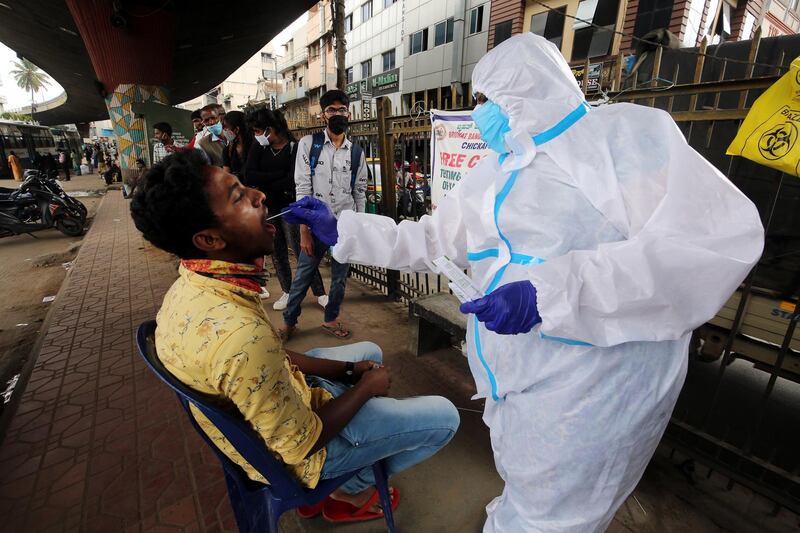The Covid-19 pandemic is threatening to roll back gains achieved over the past decade in health and education, especially in poorer countries, according to the World Bank.
Before the virus outbreak, most countries across the world recorded steady progress in building human capital – people's intangible assets such as the knowledge, skills and health benefits they accumulate – with the biggest strides made in low-income countries, the World Bank said in its 2020 Human Capital Index report. Those hard-won gains are now at risk and countries need to invest heavily in the health and education of children to recover lost ground as a result of the pandemic.
"The pandemic puts at risk the [past] decade's progress in building human capital, including the improvements in health, survival rates, school enrolment and reduced stunting,” World Bank president, David Malpass, said. “Protecting and investing in people is vital as countries work to lay the foundation for sustainable, inclusive recoveries and future growth."
In May, the World Bank said it plans to deploy up to $160 billion (Dh587.2bn) in financial support over 15 months to help more than 100 countries, protect the poor and support businesses. This includes $50bn of new International Development Association resources being made available to the poorest nations.
Multilateral lenders such as the World Bank and the International Monetary Fund, along with G20 member states, are trying to support low-income nations through debt suspension programmes, loans and grants. However, financial resources for health and education systems in vulnerable countries are under increased pressure as the pandemic continues to accelerate in parts of Asia, Africa, Europe and the Americas.
India on Wednesday became the second country to pass 5 million infections. Globally, the number of infections has climbed to 29.7 million, with more than 939,000 fatalities and 21.5 million recoveries, according to Worldometer data.
The pandemic has tipped the global economy into the deepest recession since the Great Depression. The IMF forecasts the world economy will shrink 4.9 per cent this year while the World Bank estimates it is likely to contract 5.2 per cent.
The World Bank 2020 Human Capital Index includes health and education data for 174 countries – covering 98 per cent of the world’s population – up to March 2020, providing a pre-pandemic baseline on the health and education of children.
Despite the progress made before the Covid-19 outbreak, a child born in a typical country could expect to achieve just 56 per cent of their potential human capital, relative to a benchmark of complete education and full health, according to the World Bank analysis.
More than 1 billion children have been out of school due to the pandemic and may lose out, on average, on half a year of schooling, which could translate into a considerable monetary loss in later life. Data also shows significant disruptions to essential health services for women and children, with many children missing out on crucial vaccinations.
The World Bank said that on average girls enjoy higher human capital than boys in their early lives; however, this has not translated into comparable opportunities in the labour market. On average, employment rates are 20 percentage points lower for women than for men, with an even wider gap in many countries and regions.
“The economic impact of the pandemic has been particularly deep for women and for the most disadvantaged families, leaving many vulnerable to food insecurity and poverty," Mr Malpass said.
The World Bank is working closely with governments to develop long-term solutions to protect and invest in people during and after the pandemic, he said.








